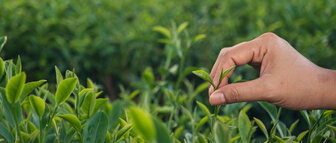The depth of Japanese philosophy in a cup
In Japanese culture, certain words transcend language – they embody a way of life.
One such word is Kiwami (極), meaning the perfection, the highest mastery, and a profound respect for tradition.
In the world of tea, Kiwami denotes teas of extraordinary quality – those crafted from the earliest spring leaves, processed with absolute precision and balance. It is not merely a label of quality, but a philosophy of harmony uniting nature, craftsmanship, and purity.
Meaning of Kiwami (極)
1. Basic meaning
Kiwami literally means the peak, the ultimate, or perfection. It signifies the highest attainable level of refinement and excellence.
2. Cultural context
The term is deeply connected with the Japanese concept of kodawari – the pursuit of perfection through care, precision, and devotion to detail. Kiwami is reserved for creations that embody the harmony of tradition, technique, and aesthetics.
3. Use in tea culture
In Japanese tea, Kiwami marks the most exceptional examples of each type – Kiwami Gyokuro, Kiwami Matcha, Kiwami Sencha – teas representing the highest craftsmanship and the purest balance of flavour.
4. Symbolism of 極
The character 極 conveys the idea of reaching the ultimate point or end of a journey. It symbolises perfection achieved through patience, discipline, and mastery.
5. Comparable expressions
In Western terms, Kiwami might parallel "supreme", "masterpiece", "grand cru" or "Crème de la crème". Yet in Japanese tradition, it carries a spiritual nuance – a mark of humility and respect rather than mere excellence.
Kiwami in the world of tea
Teas labelled Kiwami are born where precision meets humility. Each leaf bears the calm spirit of Japanese artistry and the rhythm of nature.
Kiwami Gyokuro and Kiwami Matcha are more than teas – they are living works of art, reflecting the devotion and harmony between the artisan, time, and the earth.
To taste them is to experience the essence of Japanese perfection.
